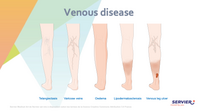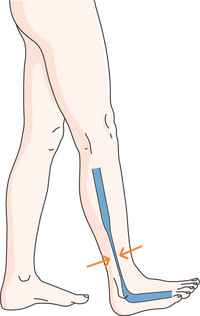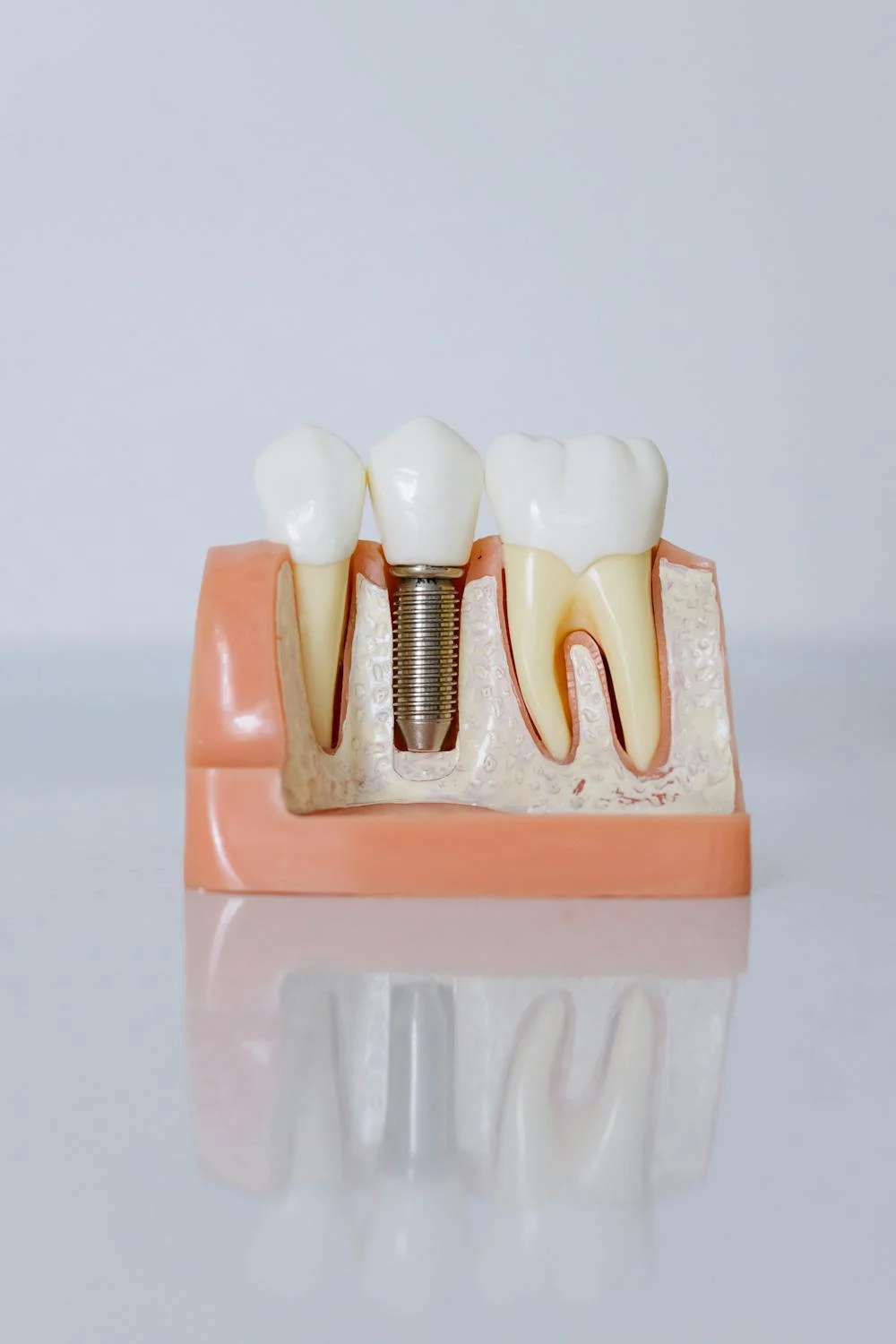What is HAE?
Hereditary Angioedema (HAE) is a rare genetic disorder. It causes sudden swelling in various parts of the body. These swelling episodes can be painful and dangerous. Knowing the details of this condition is crucial. It helps in making informed treatment decisions. Effective management is vital for improving patient outcomes.Types of HAE Treatments
HAE treatments can be categorized. They include acute treatments and prophylactic treatments. Acute treatments are used during an attack. Prophylactic treatments are used to prevent attacks. Each treatment type has its own set of benefits and risks. The choice of treatment depends on individual patient needs. Understanding these treatments helps in better patient care. (more…) In recent years, the interest in herbal supplements has surged. Many people are turning to these natural alternatives to improve their health and well-being. But what role do herbal supplements play in modern medicine? Are they truly effective, or just a trend? In this article, we'll explore the intersection of herbal supplements and modern medicine, uncovering the benefits, risks, and scientific perspectives on this growing phenomenon.
Please remember most herbal medications and supplements are not FDA approved or tested. Many have side effects especially in combination with other medications or supplements. Please consult with your health care provider before taking any supplements you are considering taking and be aware of potential side effects. Supplements should not be used during pregnancy or while nursing without the express permission of your health care provider.
In recent years, the interest in herbal supplements has surged. Many people are turning to these natural alternatives to improve their health and well-being. But what role do herbal supplements play in modern medicine? Are they truly effective, or just a trend? In this article, we'll explore the intersection of herbal supplements and modern medicine, uncovering the benefits, risks, and scientific perspectives on this growing phenomenon.
Please remember most herbal medications and supplements are not FDA approved or tested. Many have side effects especially in combination with other medications or supplements. Please consult with your health care provider before taking any supplements you are considering taking and be aware of potential side effects. Supplements should not be used during pregnancy or while nursing without the express permission of your health care provider.
A Brief History of Herbal Medicine
Herbal medicine has been around for thousands of years. Ancient civilizations like the Egyptians, Chinese, and Greeks used plants to treat various ailments. In fact, many of today's pharmaceuticals have their roots in herbal remedies. For instance, aspirin was derived from willow bark, and digitalis, used to treat heart conditions, comes from the foxglove plant. Despite the rise of synthetic drugs, herbal medicine never entirely disappeared. Instead, it evolved, and are widely available today at both brick and mortar stores to online platforms like Pravdao.sk. Today, we see a blend of ancient wisdom and modern science in the world of herbal supplements.(more…)
Risk for Type 1 Diabetes Higher for Boys than Girls in Later Childhood
Navigating Medicare: How to Find and Choose Primary Care Doctors
Understanding Medicare and Its Different Parts
Medicare is a federal health insurance program primarily for individuals aged 65 and older, though it also covers certain younger people with disabilities. Medicare consists of four parts:- Medicare Part A: Covers inpatient hospital stays, care in a skilled nursing facility, hospice care, and some home health care.
- Medicare Part B: Covers certain doctors' services, outpatient care, medical supplies, and preventive services.
- Medicare Part C (Medicare Advantage): An alternative to Original Medicare that offers all Part A and Part B services through private insurance companies. These plans often include additional benefits like vision, dental, and prescription drug coverage.
- Medicare Part D: Covers prescription drugs.
The Importance of Content Marketing in Healthcare
70% of companies believe content marketing has become more important to their organization, and content marketing is especially crucial in the healthcare industry. Content allows professionals to share their expertise, educate patients, and address common concerns. For plastic surgeons, content marketing and social media provides a platform to showcase their skills, share patient success stories, and explain complex procedures in an accessible way. This not only helps in attracting new patients but also fosters a sense of trust and reliability. (more…)Eight Mental and Physical Fitness Tips for New RNs
- Don’t Skimp on Sleep
Johns Hopkins Study Finds Higher Risk of Diabetes Associated with Ultra-Processed Foods
Uterine Fibroids: Weill Cornell Radiologist Discusses Implications and Treatment Options
Effective Strategies for Managing Mental Health in Everyday Life
- Simple daily practices can significantly improve mental health.
- Mindfulness, proper nutrition, and social connections are crucial.
- Professional help is valuable and should not be stigmatized.
- The Importance of Mental Health
- Practicing Mindfulness
- Nutrition and Mental Health
- The Role of Exercise
- Building Strong Social Connections
- Seeking Professional Help
- Creating a Balanced Daily Routine
- Final Thoughts
- Rapid Hydration
- Immediate Rehydration: IV therapy is highly effective for rehydrating the body quickly, especially after intense physical activity, illness, or dehydration.
- Electrolyte Balance: Restores essential electrolytes, which are vital for maintaining bodily functions.
Compare Rybelsus and Metformin for type 2 diabetes treatment. Discover their benefits, side effects, effectiveness, weight impact, and cost differences....
The Different Types of Abuse Elders Are Subjected to in Nursing Homes
- Quality Control: For healthy cooking we need to have full control on recipe and ingredients. From bone broth you have the right to add no unhealthy, unwanted ingredients and no preservatives.
- Cost-Effective: One of the most important benefits is no expensive recipe on the go. Simply add leftover bones at your home to make the perfect broth and say Hi to the cheaper and appetizing healthy broth.
- Nutrient-Dense: While cooking bones broth on a slow flame, there is an increase in nutrition and flavor on broths, when made at home. These little tips for healthy ingredients are no doubt the perfect blend on your daily lifestyle.
Exploring the Connection Between Access Control and Workplace Efficiency
 The use of cloud-based access control systems in modern workplaces has shown a positive correlation with improved operational efficiency. By eliminating the need for physical keys and manual check-ins, employees are granted swift entry, thereby reducing bottlenecks during peak hours. Implementing access control provides seamless entry and helps maintain a steady workflow from the moment employees step into the office.
Moreover, these systems offer the capability to manage permissions remotely, saving time for both employees and management. Managers can adjust access rights from anywhere, ensuring that the right personnel have the right access without any delay. Such flexibility avoids interruptions in the workday and allows employees to remain focused on their tasks.
With fewer administrative tasks to handle, office managers find more time to devote to strategic initiatives. The automation of access control systems reduces the need for manual oversight, freeing up resources that can then be allocated to more impactful areas of the business. The shift from administrative to strategic roles not only boosts productivity but also enhances job satisfaction.
(more…)
The use of cloud-based access control systems in modern workplaces has shown a positive correlation with improved operational efficiency. By eliminating the need for physical keys and manual check-ins, employees are granted swift entry, thereby reducing bottlenecks during peak hours. Implementing access control provides seamless entry and helps maintain a steady workflow from the moment employees step into the office.
Moreover, these systems offer the capability to manage permissions remotely, saving time for both employees and management. Managers can adjust access rights from anywhere, ensuring that the right personnel have the right access without any delay. Such flexibility avoids interruptions in the workday and allows employees to remain focused on their tasks.
With fewer administrative tasks to handle, office managers find more time to devote to strategic initiatives. The automation of access control systems reduces the need for manual oversight, freeing up resources that can then be allocated to more impactful areas of the business. The shift from administrative to strategic roles not only boosts productivity but also enhances job satisfaction.
(more…)What Are Essential Oils?
Essential oils are concentrated extracts from plants that preserve their natural aroma and beneficial properties. They are derived from different parts of plants, including flowers, leaves, stems, and roots, through processes such as cold pressing, steam distillation, or solvent extraction. Unlike synthetic fragrances, which are created from artificial compounds, essential oils are entirely natural and contain the essence of the plant's fragrance and medicinal properties. Essential oils, being highly potent, require careful handling. They typically need to be diluted with a carrier oil, such as coconut, jojoba, or almond oil, before application to the skin. Essential oils can be used in a variety of ways, including inhalation, topical application, and, in some cases, ingestion. However, it’s crucial to use them correctly to avoid adverse reactions and to ensure their effectiveness. This caution and responsibility in usage is key to reaping the benefits of essential oils. Allergic reactions to essential oils can also develop. (more…)Thyroid Health: Should you take Thyroid-Specific supplements?
Find out if thyroid-specific supplements are right for you, the benefits, and the risks....
Beat the Heat: Managing Varicose Veins in Summer
While home remedies and lifestyle changes can help manage varicose veins, there are times when it's important to consult a...
Elevating your legs is a simple way to manage varicose vein discomfort. This helps reduce the pressure in your veins...
Protecting Patients and Providers: Why You May Need a Healthcare Fraud Attorney
Understanding Healthcare Fraud
Healthcare fraud involves the misrepresentation or intentional deception that results in unauthorized benefits. It’s a broad term covering various illicit activities within the healthcare industry.Common Types of Healthcare Fraud
Healthcare fraud can manifest in various ways, each with its unique methods and consequences. Understanding these types of fraud is crucial for patients and providers to recognize and prevent fraudulent activities. From billing schemes to illicit referrals, let's explore the most common types: - Billing for Services Not Rendered. This is when providers bill for medical services or never performed procedures. - Upcoding. Upcoding is the billing for a more expensive service than was provided. - Kickbacks. Kickbacks occur when providers receive incentives for referring patients to specific services or suppliers. When we face legal issues related to healthcare fraud, consulting a medicare fraud attorney is crucial. (more…)Varicose veins are enlarged vessels in the legs. They appear when the valves in the veins fail, causing blood to...
Understanding Varicose Veins
Varicose veins are twisted veins that usually appear dark purple or blue. They occur when valves in the veins fail, and blood flows in the wrong direction or pool. This pooling causes the veins to swell, often visible under the skin’s surface, especially in the legs and feet.Symptoms and Signs
Common symptoms of varicose veins include: - Aching pain - Heaviness - Swelling - Itching around the affected veins In worst cases, skin ulcers may develop, leading to further complications. (more…)Understanding Vein Health
Veins are like highways for blood, carrying it back to the heart after it's delivered oxygen throughout the body. They have little valves that keep the blood flowing in the right direction, helping us stay energized and healthWhy Healthy Veins Are Vital Healthy veins aren't just about avoiding unsightly varicose veins. They're crucial for preventing serious problems like blood clots and leg ulcers. When veins work well, we feel better and can do more. The good news is that several varicose vein treatment options are available to help you deal with this issue. They range from lifestyle changes to medical interventions, depending on the severity of the condition. (more…)Myth 1: Alcohol warms you up
Picture this: it's a cold winter evening, and you think a shot of whiskey will warm you right up. It might feel that way momentarily as alcohol causes blood vessels to dilate, giving a flush to your cheeks. But here's the catch—while you might feel warmer on the outside, alcohol actually lowers your core body temperature. It's a short-lived sensation that can lead to more heat loss and potentially hypothermia if you're not careful.Myth 2: Alcohol improves vein health
There's a misconception that alcohol consumption benefits vein health. However, alcohol dilates blood vessels, potentially worsening conditions like varicose veins. Consider consult a vein specialist in Orlando to reduce the discomfort and the risk of developing other vascular issues. (more…)Lifestyle Changes to Manage PAD: Diet, Exercise, and Smoking Cessation
Understanding PAD
PAD affects the arteries outside the brain and heart, usually in the legs. This happens due to plaque buildup. This narrowing restricts blood flow, causing symptoms like: - Leg pain - Cramping - Ulcers Recognizing these symptoms is key for early detection and management. Consult an interventional radiologist for accurate diagnosis and reduced pain treatment plans. (more…)Preventing varicose veins involves a combination of healthy lifestyle choices, daily habits, and sometimes medical interventions...
The Importance of Aging in Place
The concept of aging in place allows seniors to remain in their homes as they age, surrounded by the comfort and familiarity of their environment. This approach offers numerous benefits:- Familiarity and Comfort: Home is a sanctuary, filled with memories and a sense of security. Aging in place allows seniors to maintain their routines and continue living comfortably in a familiar setting.
- Maintaining Independence: Staying at home allows seniors to retain control over their daily lives, making their own decisions and maintaining a sense of autonomy. This independence contributes to a positive sense of self-esteem and well-being.
- Mental and Emotional Well-Being: Familiar surroundings and continued independence can significantly impact mental and emotional health. Seniors who age in place are less likely to experience feelings of isolation or depression that can accompany a move to a new environment.
- Convenience and Streamlined Scheduling: One of the most significant advantages of family dentistry is convenience. Family dentists can handle all your family's dental needs under one roof, eliminating the need to schedule separate appointments with different dentists. This saves you time and ensures everyone in the family receives regular dental care.
- Familiarity and Comfort: Regular visits with the same dentist foster a sense of trust and familiarity. This is especially important for young children who may experience anxiety during dental visits. A familiar environment and a dentist they know can make a world of difference, transforming a potentially stressful experience into a positive one.
- Continuity of Care: A family dentist can track your family's dental history, allowing for personalized treatment plans and early detection of potential problems. This continuity of care is crucial for maintaining optimal oral health throughout your life. Your dentist can monitor the development of your children's teeth, identify any potential issues early on, and provide preventative measures to avoid future complications.
- Understanding Family Dental Needs: Family dentists are trained to address the unique dental needs of each family member. From the eruption of a child's first tooth and the development of their primary and permanent teeth to the concerns of adults and seniors, family dentists are equipped to handle all stages of oral health.
- Comprehensive Preventive Education: A family dentist not only provides routine care but also emphasizes preventive education tailored to your family’s specific needs. They can teach children the importance of brushing and flossing, provide dietary recommendations to support healthy teeth, and offer advice on preventing dental issues like cavities and gum disease. According to these dentists in San Antonio TX, by equipping your family with the knowledge to maintain good oral hygiene, they help ensure a lifetime of healthy smiles.
Effective Treatments for Spine Problems
Don't hesitate to schedule a consultation with a qualified healthcare professional like an orthopedist specializing in spine care to discuss...
Understanding the Types of Damage and Discoloration
Tooth damage and discoloration can manifest in various ways:- Chipped or Cracked Teeth: These can be caused by accidents, biting down on hard objects, or teeth grinding. The severity of the chip or crack will determine the most suitable treatment.
- Worn Teeth: Over time, teeth can wear down due to age, grinding, or acidic foods. This can expose the underlying dentin, making teeth appear yellowed.
- Stains and Discoloration: Coffee, tea, red wine, and smoking are notorious for staining teeth. The aging process and certain medications can also contribute to discoloration. The extent and depth of the stain will influence the appropriate whitening method.





























